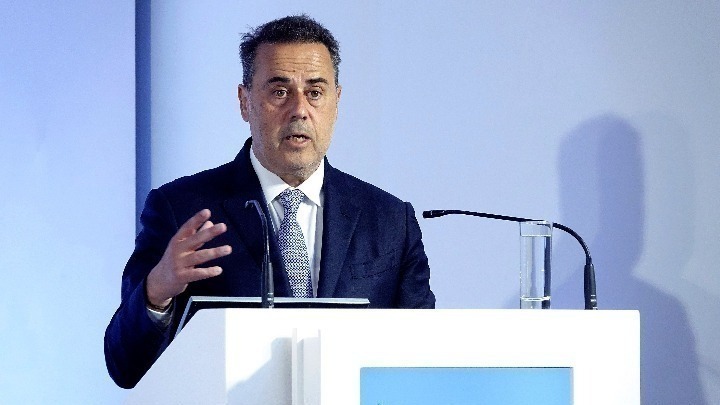Papastavrou: New marine parks are 'a historic step for the protection of our seas'

Environment and Energy Minister Stavros Papastavrou on Tuesday emphasised the significance of the two new Marine National Parks announced by Prime Minister Kyriakos Mitsotakis - one in the Southern Cyclades and one in the Ionian Sea - for the effective protection of Greece’s seas and the preservation of biodiversity.
"The sea has been the cradle of Greek civilisation and of our maritime strength, and it is inseparably linked to the core of our national identity," emphasised the minister during an appearance on SKAI television.
He described the establishment of the parks as "a historic step for the protection of our seas, with both national and human significance." He pointed out that the total area of the two marine parks significantly exceeds the Prime Minister’s original commitments, reaching approximately 27,500 square kilometers.
According to Papastavrou, those particular locations were chosen for the two parks "because they are particularly sensitive environmental ecosystems." He pointed out that Greece hosts the world’s largest population of the Mediterranean monk seal, which lives primarily in the Southern Cyclades.
"Marine biodiversity is not the concern of only the few. It is not something that only concerns scientists-it also concerns our islanders, our fishermen, our children. It concerns all of us. It is not an abstract concept. It is daily life in the Aegean and the Ionian. It is our shield against the climate crisis, and it brings us together," he stated.
Papastavrou said that the creation of the Marine Parks extends a protective net over 35% of Greece’s territorial waters-an initiative that, as he said, has already been received positive feedback from environmental organisations. He emphasised that this initiative positions Greece as a leader on the European level, since the obligation to establish Marine Parks in up to 30% of territorial waters by 2030 will not only be met much earlier - by 2026 - but will also exceed the target, covering 35% of Greek waters. At the same time, he highlighted the fact that Greece is the first EU member state to ban bottom trawling as a measure to protect marine ecosystems in particularly degraded areas-a policy also adopted by countries like Denmark and Sweden.
Finally, when asked about the stability of Greece's power grid during the heatwave, Papastavrou said that there is sufficient capacity, but also constant vigilance from all relevant authorities, with close cooperation and coordinated actions to ensure that it operates smoothly. "We are not complacent; we remain on constant alert", he said.

